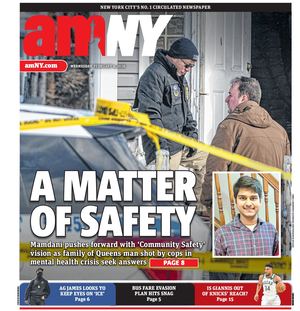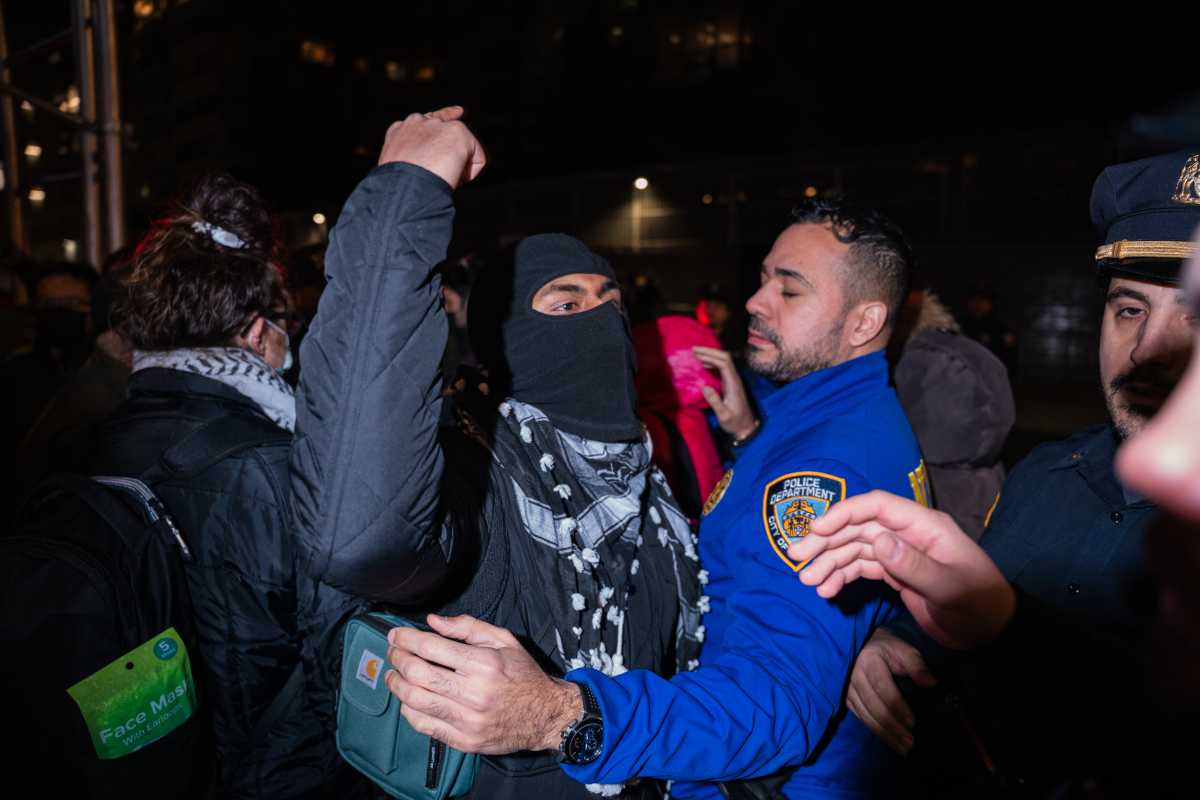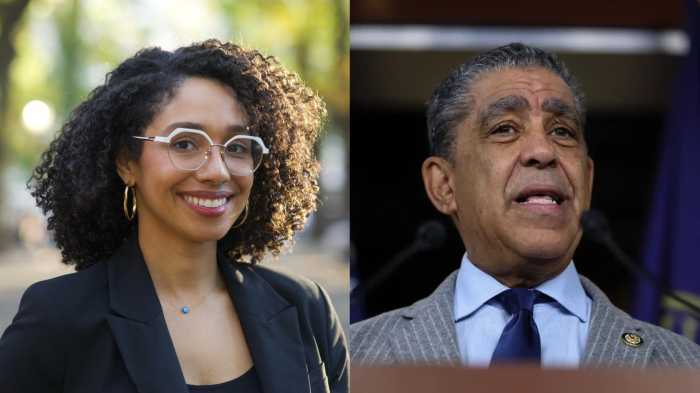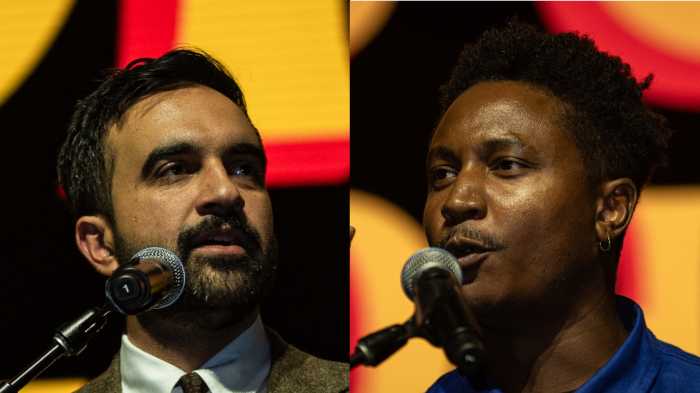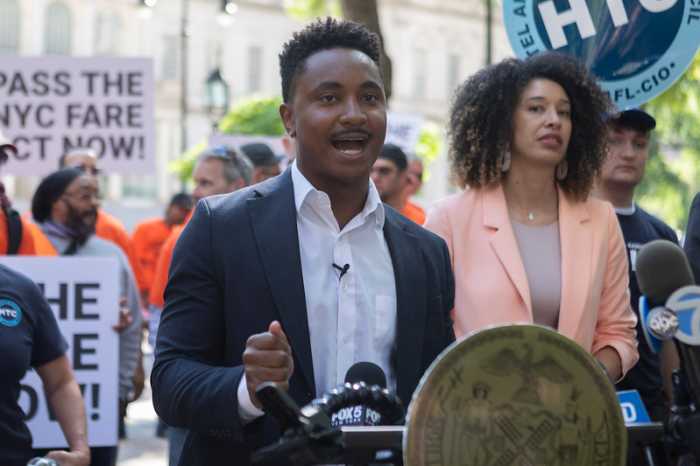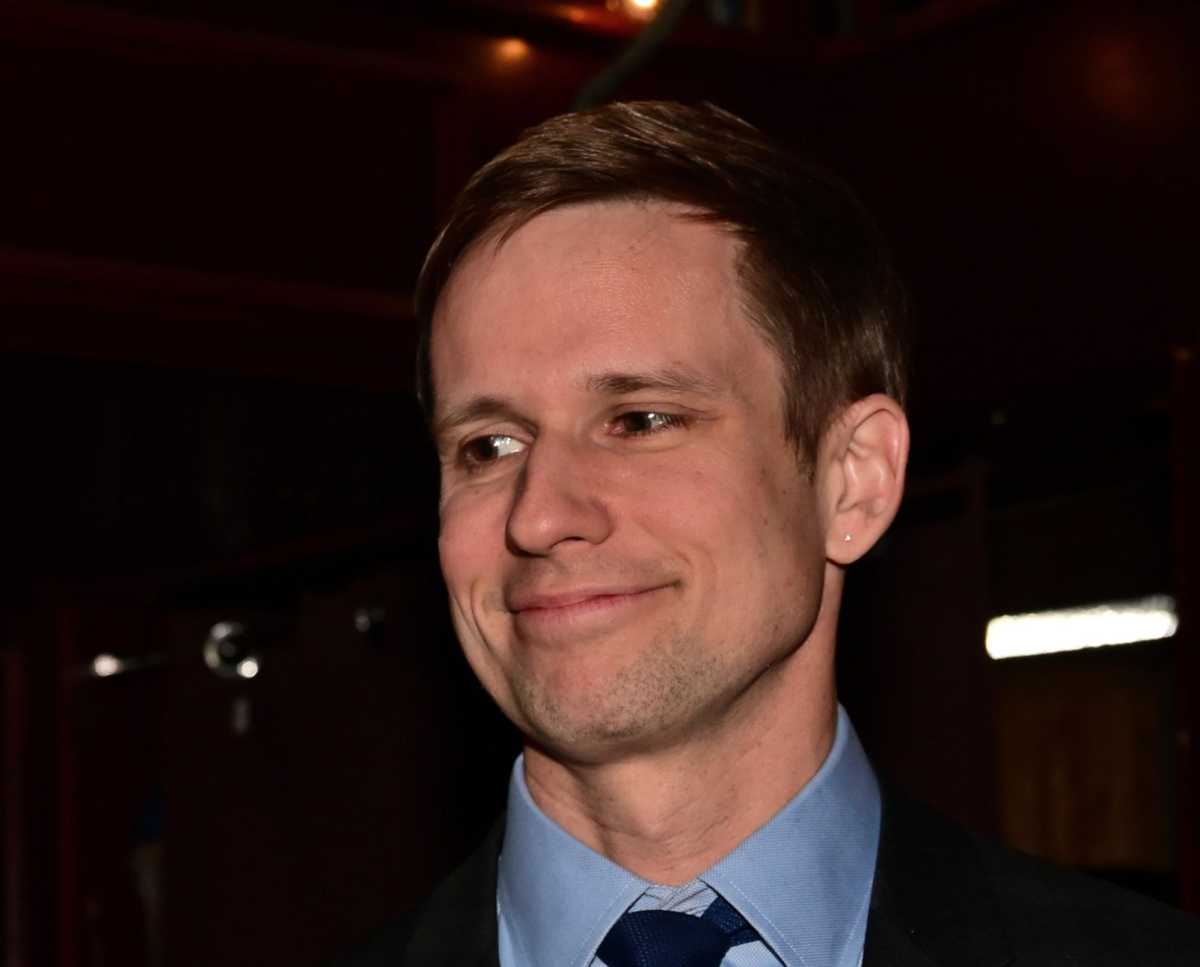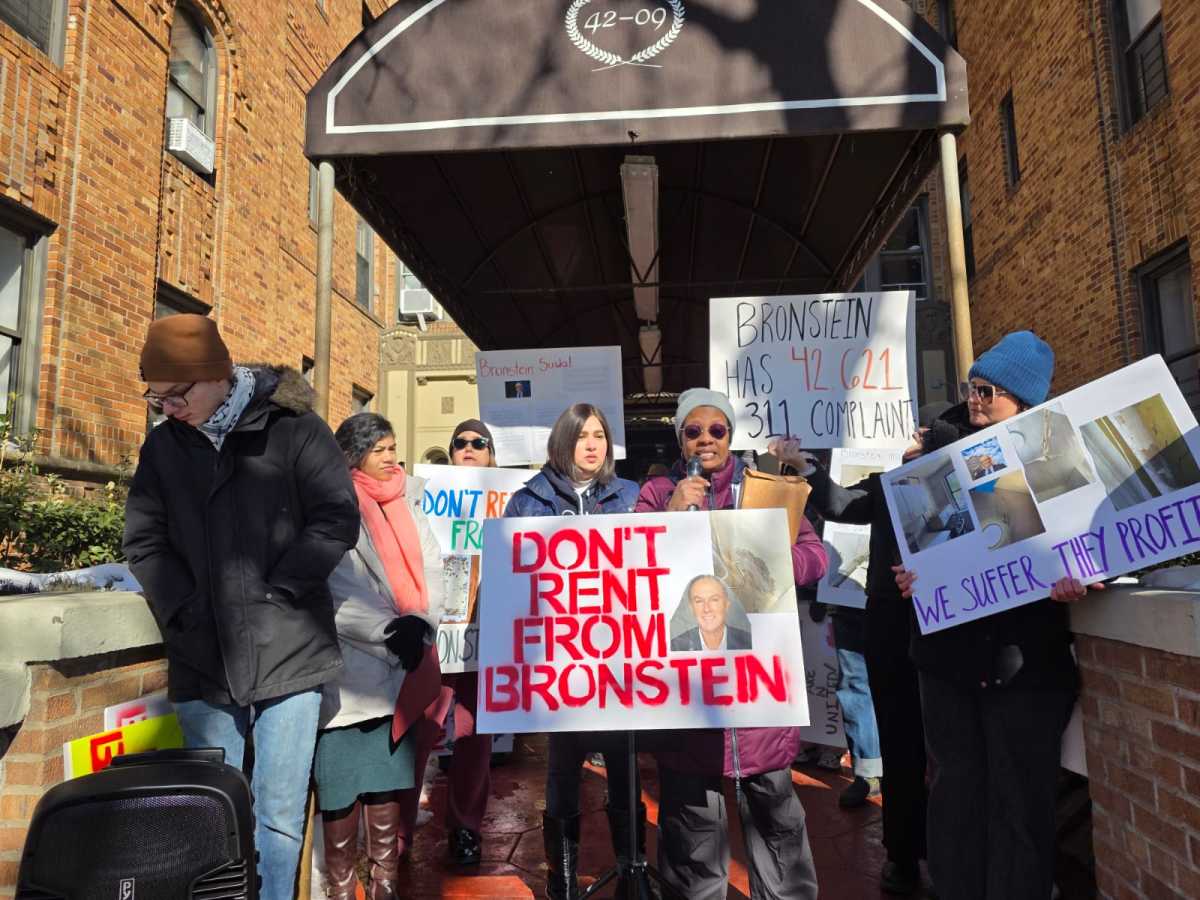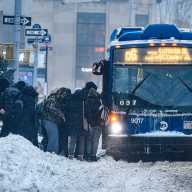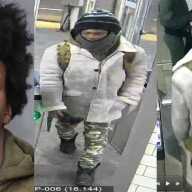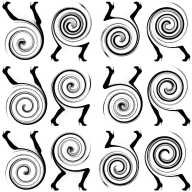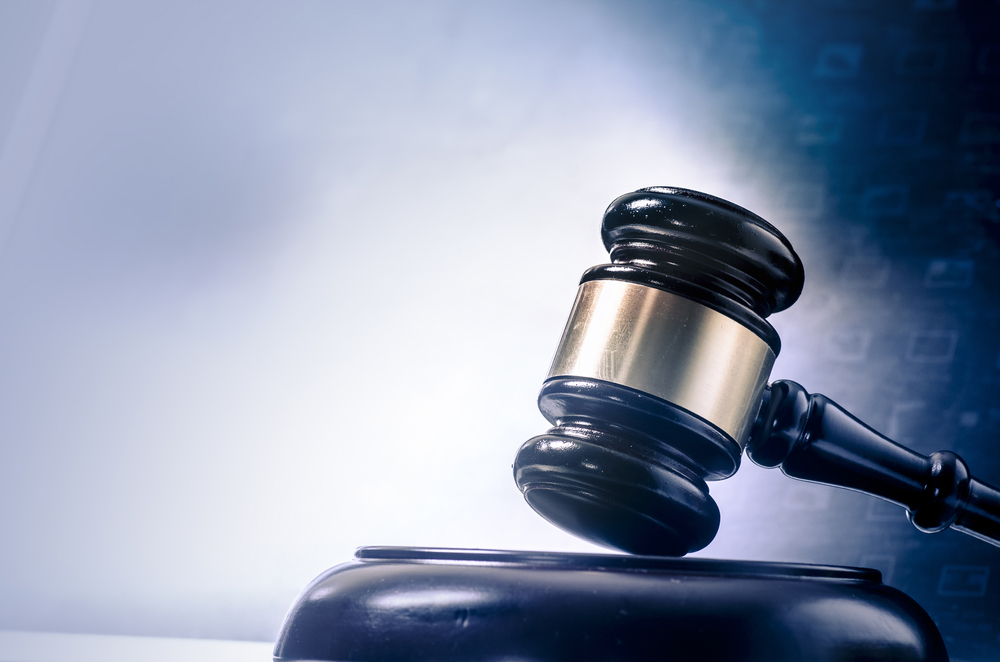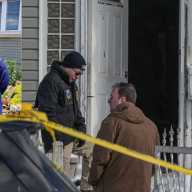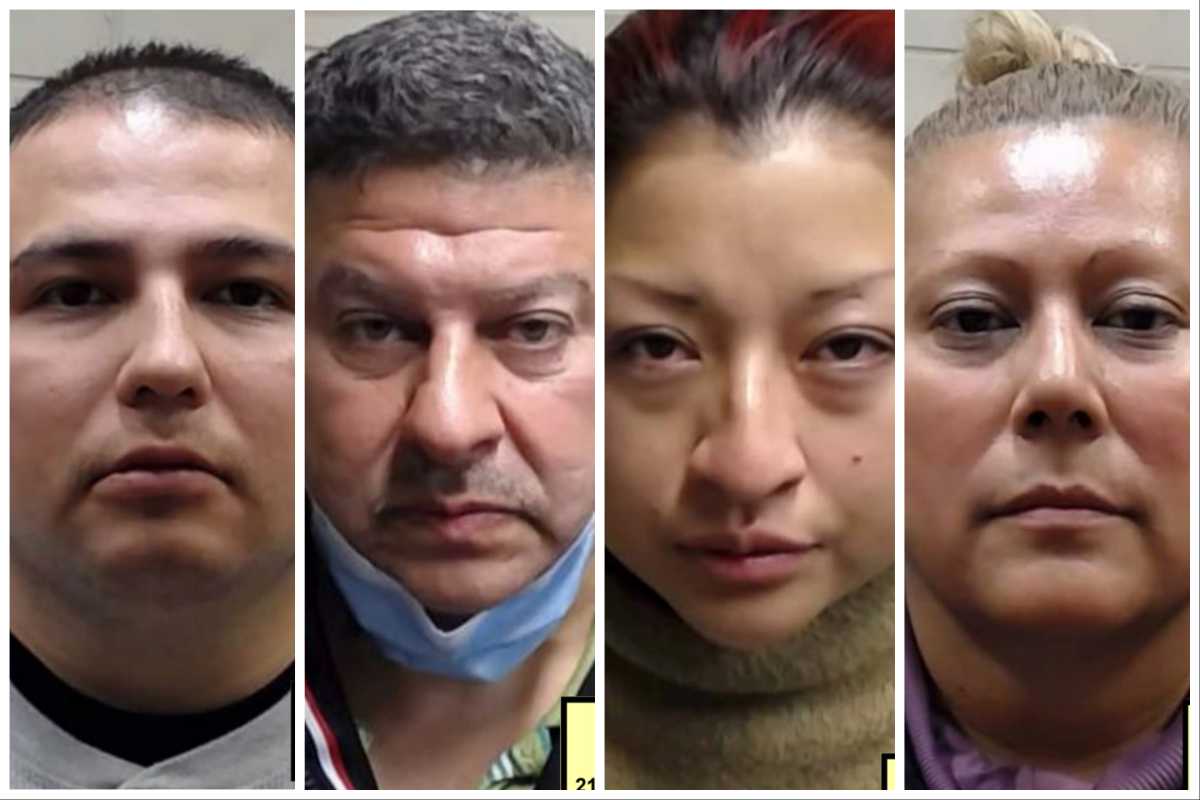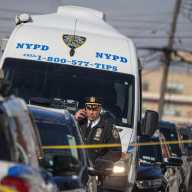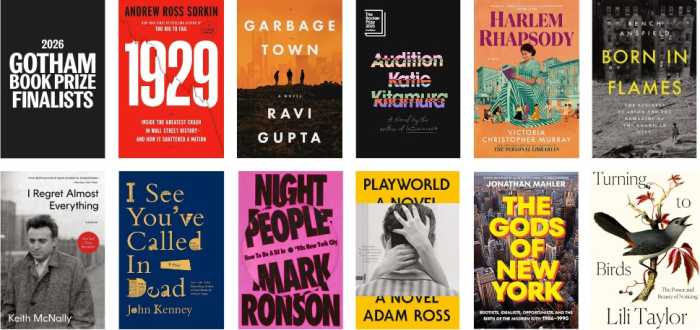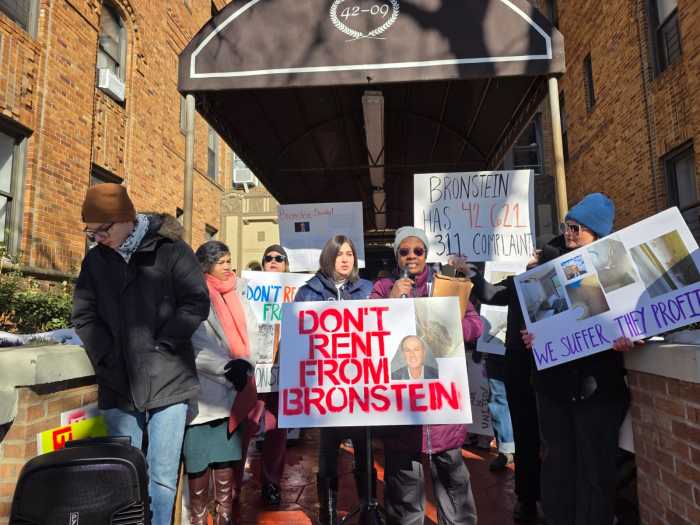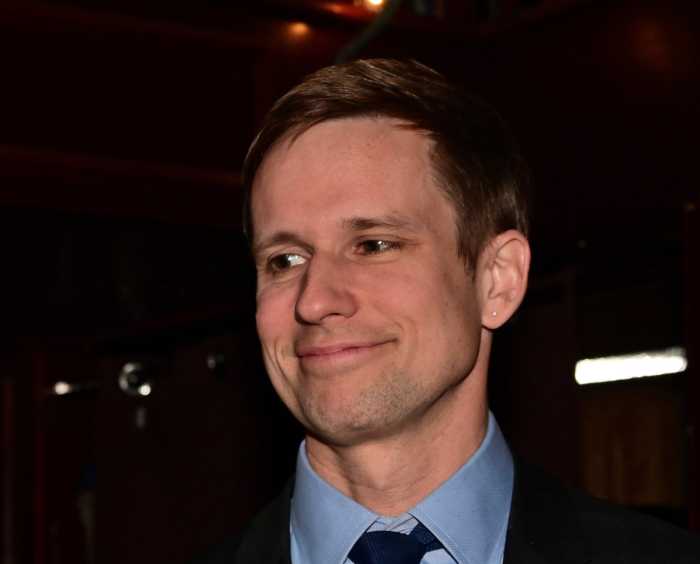New Yorkers and local leaders expressed outrage over Mayor-elect Zohran Mamdani’s “weak” and deeply troubling response, through his spokesperson, to an antisemitic protest outside the Park East Synagogue last week.
Scores of protestors converged upon the synagogue, where Nefesh B’Nefesh, an organization that assists Jewish immigration to Israel, held a scheduled event. Many protestors wearing face masks held Palestinian flags and chanted messages such as “Globalize the Intifiada” and “Death to the IDF,” per numerous online videos.
The incident prompted an NYPD response, with online videos showing officers actively separating the demonstrators from a smaller group of counter-protesters. But the strong protest, marked with death threats and antisemitic language, was met with a lackluster response from Mamdani, according to many Jewish leaders in NYC.
It was particularly appalling to many observers, given that Mamdani, during the campaign, had publicly stated that terms such as “globalize the intifada” were not something he would use, and would discourage others from using. He claimed he had recognized the harm such rhetoric causes Jewish New Yorkers.
Mamdani’s transition team did not respond to amNewYork’s request for comment on Sunday, but the below statement came from his spokesperson, Dora Pekec, immediately following Wednesday night’s protest:
“The Mayor-elect has discouraged the language used at last night’s protest and will continue to do so. He believes every New Yorker should be free to enter a house of worship without intimidation, and that these sacred spaces should not be used to promote activities in violation of international law.”
The statement, which outraged many Jewish New Yorkers, did not directly address the rhetoric used by protesters, nor did it explain the perceived international law violation that Pekec claimed occurred.
Mamdani response ‘poured more fuel on the fire’
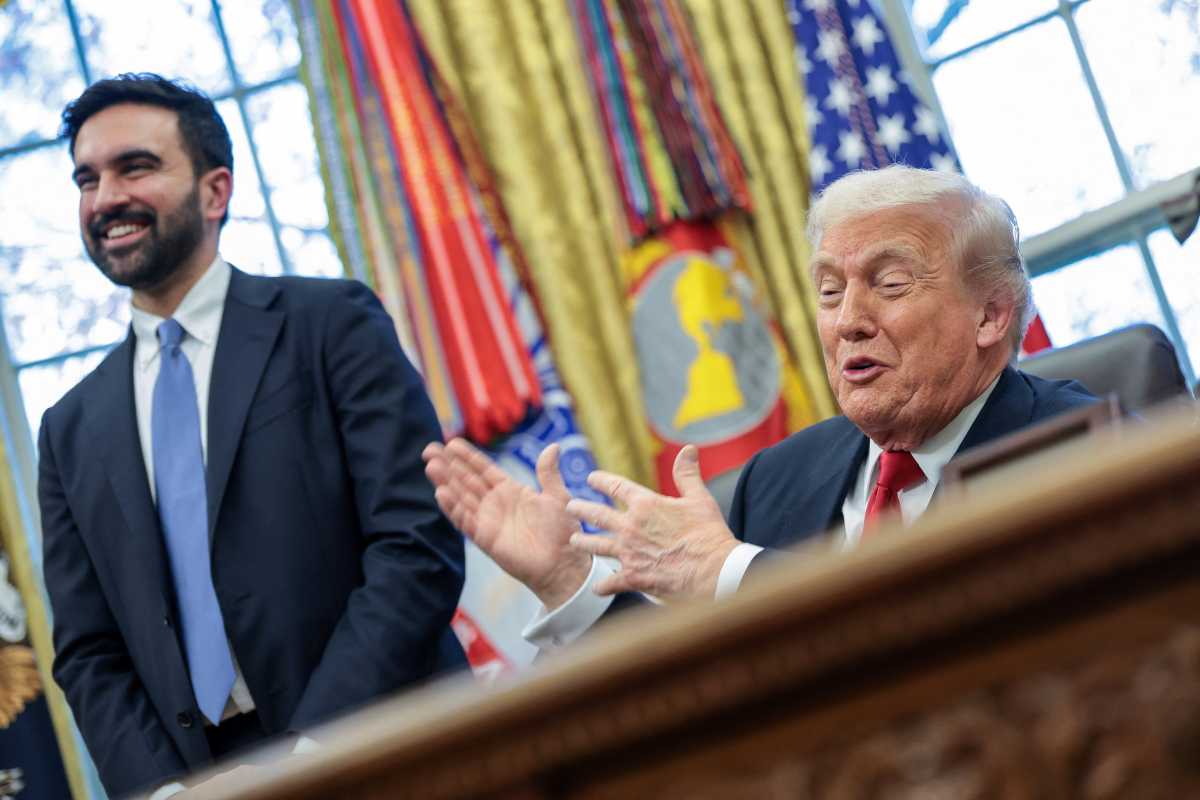
Jewish leaders in New York considered the statement from the Mamdani transition team a “hollow” response to hate-filled rhetoric voiced outside the synagogue Wednesday.
Gavriel Sanders, a spokesperson for the Be a Mensch Foundation, called the statement “hollow” and questioned how Mamdani will protect Jewish New Yorkers.
“Concrete action, not statements of discouragement, are needed to address rising antisemitism in NYC,” Sanders said. “The statement issued by the Mayor-elect’s team is as hollow as his proposed plans to protect Jews in the city. If this response is any indication of how the Mayor-elect plans on protecting every New Yorker during his administration, then he must stand up and push back against violence towards Jews. Violence will only flourish in the absence of any leadership.”
Rabbi Chaim Steinmetz of Congregation Kehilath Jeshurun on the Upper East Side said the Mayor-elect’s response “poured more fuel on the fire” of antisemitism.
“Mamdani promised during the campaign that he would take antisemitism seriously,” Steinmetz said. “But his statement after the near riot outside Park East Synagogue doesn’t take antisemitism seriously at all. A group of 200 people, shouting violent slogans, came to intimidate the members of a synagogue. We have not seen anything like this in NYC in decades.”
He told amNewYork that his community is not only hurt, but shocked by the protest. Steinmetz also feels Pekec’s statement adds insult to injury.
“Instead of condemning the protestors, Mamdani’s spokesperson victim-blamed the members of the synagogue by making the absurd claim that the synagogue program broke international law,” the rabbi said. “And she refused to condemn the protesters, only offering the vapid, mealy-mouthed thought that the mayor had ‘discouraged’ such rhetoric in the past.”
He also expressed concern that the statement’s weakness might fail to deter future protests targeting synagogues.
“Mamdani must apologize for this statement immediately before more damage is done,” Steinmetz said.
A close eye on how Mamdani will respond to antisemitism
Mamdani’s stance on Israel and antisemitism was closely watched by New Yorkers throughout his campaign. During early voting in October, more than 1,000 rabbis from across the country publicly voiced their opposition to a Mamdani mayoralship, criticizing the Assembly Member from Queens for helping to propagate a hostile environment for Jewish New Yorkers.
During one of the mayoral debates earlier this year, moderators asked Mamdani if he had regrets about how he had dealt with issues regarding Israel and Jewish New Yorkers continuing to feel unsafe after acts of antisemitism increased after the start of the Hamas-Israel war on Oct. 7, 2023.
Mamdani did not directly respond to whether he had any regrets about his statements or views on Israel, but stated that he would be a mayor for all New Yorkers.
“That includes Jewish New Yorkers who may have concerns or opposition to the positions that I’ve shared about Israel and Palestine,” he said on the debate stage.
During a meeting late Friday afternoon with President Trump, Mayor-elect Mamdani did not directly respond to a question about Wednesday’s incident, though he did say, “I care very deeply about Jewish safety. He further pledged to “root out antisemitism across the five boroughs.”
A ‘coordinated protest’ that Mamdani sought to justify, legal expert says
Gerard Filitti, senior counsel at The Lawfare Project, took a legal point of view when describing the Mayor-elect’s response to the protest.
He further described the “coordinated protest” as aligning closely with the fact patterns the U.S. Department of Justice has targeted under the FACE Act, which protects access inside a place of worship.
“Harassment, menacing, targeted intimidation, and interference with lawful access to a building are all prohibited by state law, and the New York City Human Rights Law prohibits conduct that intimidates or deters people from accessing community institutions because of their religious or national origin,” Filitti said. “These are the issues Mamdani should be focused on. Instead, he victim-blames Jews going to synagogue.”
After Wednesday’s protest, both Mayor Eric Adams and Gov. Kathy Hochul spoke out more directly about the incident, with the governor even calling it “shameful” on social media.
Adams said on social media he plans to visit the Park East Synagogue after he returns home on Sunday following a trip to Israel and Uzbekistan.
Meanwhile, the Anti-Defamation League issued a statement criticizing the Mayor-elect’s response.
Deeply troubling to the ADL is the Mayor-elect’s comments suggesting Jewish institutions in New York are “violating international law” by holding a community program supporting Jews who want to move to Israel,” the statement read. “This is outrageous and deeply offensive and is rooted in a hateful ideology that Jews are the only people in the world who do not deserve the right to self-determination in their ancestral homeland.”
